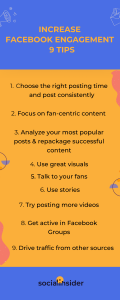Are you thinking about using email marketing to grow your business? If so, you’re not alone. Almost 4 billion people use email as of the year 2020, and that number is expected to rise in the future.
Due to email marketing’s popularity, there are plenty of opinions on what to consider if you hope to find success. We think that before you can look at marketing strategies, you need to see and understand the statistics behind these claims.
Today, we will explore five email marketing stats you need to see to believe. By the time you get to the end, you’ll have a better grasp of the importance and nuances of marketing to customers through email.
Let’s get started!
1. 68% of Emails are Opened on Smartphones
Over 5 billion people own mobile devices and use them for everything from shopping to chatting with friends. While 91% of people access social media from their mobile devices, a large percentage of consumers also use their smartphone to check their email.
In fact, 68% of emails are opened on mobile devices. The truth is, mobile use is up on virtually every platform you can imagine, including Google search.
If you want to improve your sales, open rate, and engagement, optimizing your emails for mobile devices is no longer optional. Using a mobile-responsive design that includes shorter subject lines, concise copy, and meaningful links towards the top of your emails all play a role in how smartphone users interact with your emails.
2. The Average Email Open Rate is 22.86%
You can’t have a substantial email campaign if you don’t know common analytics surrounding your strategy. For instance, did you know that the average open rate across all industries is 22.86%?
Depending on what your numbers look like, this could be a good or bad thing. But understanding what most people see can help you make smarter decisions about what to do next.
If you have an abnormally low open rate, this could be a sign that it’s time to scrub your list. Alternatively, a high open-rate could indicate that you’re doing an excellent job creating meaningful content and offers for your subscribers.
It’s worth noting that your open rate is just one piece of the analytical puzzle, but one that you need to know.
3. Segmenting Your List Boosts Open Rates by 14.31%
Have you ever received marketing emails from a company that was totally unrelated to your previous purchase? If so, there’s a chance they are not doing a good job segmenting their email list.
Segmenting occurs when a business owner or marketing team divides their leads up based on behavior on-site and through email. You can even include questions on your email signup form so users can self-segment.
This strategy can have a massive impact on every aspect of your campaign. For starters, segmented emails see 14.31% more opens compared to those that don’t. The reason for this behavior isn’t hard to figure out. Subscribers enjoy opening emails that resonate with their goals, pain points, or interests.
So, a pet store could segment their list for cat and dog owners. The result is that emails featuring dog content won’t get ignored by cat owners and vice versa.
4. Cart Abandonment Emails Improve Orders by 69%
One of the most common issues business owners encounter is shopping cart abandonment. Essentially, cart abandonment occurs when someone visits your website, adds items to their shopping cart, but leave before completing their order.
Sending emails to people that sign up first can help you recover lost sales. Research shows that sending out up to 3 cart abandonment emails within a week can improve orders by 69%.
Let’s say someone stops by and registers, but fails to complete their purchase. You can trigger an email campaign to start that starts 1 hour after abandonment. A simple, “Hey, you forgot to complete your order! Here’s an exclusive discount for being a subscriber,” can dramatically improve your conversion rate.
The follow-up emails should then occur 24 hours and 1 week from the time of abandonment if they still haven’t completed their purchase.
5. Blogging can Double Your Email Traffic
Do you have a blog on your website? If not, you’re missing out on an excellent opportunity to secure more subscribers. When consumers come to your site, they are often there for more than a simple purchase. Most people like reading content about a product or the industry as a whole before committing and placing an order.
Blogging helps build rapport with your audience and can double your email traffic. If you give users more reasons to subscribe, such as exclusive content, discounts, or early access to events, you’ll see a steady increase of new subscribers.
The key is to research your audience and create content that they will find useful and relevant. Providing value to your visitors before they give you their email could be just the incentive they need to subscribe.
Digital & Social Articles on Business 2 Community
(16)







